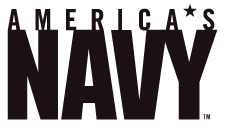Advanced training programs and the chance to earn a college education Career Potential
Here’s some great career advice to pass along: No matter how or when they enter, your son, daughter or student will find incredible training, continuing education and job advancement opportunities in America’s Navy. Not only can it jump-start their careers, it will positively impact their professional life far beyond a term of service.
Job Opportunities
Education doesn’t always need to come from a book. Nor is a college education the only path to a successful career. America’s Navy puts the focus on real-life, hands-on training. Sailors develop valuable skills in a variety of fields that often lead directly to civilian jobs. Or Sailors may choose to build a lifelong career in the Navy, whether in electronics, mechanics, computers or any other field.
For those interested in a career in the skilled trades, the Navy offers experience in a wide variety of high-demand fields. Training is free, and trainees quickly start work on real projects — the best way to learn.
Even more, advanced hands-on and classroom training programs may transfer to college credits and propel them further and faster down a career path.
Rock-Solid Job Security
When recruits sign a contract, America’s Navy also signs a contract. To give them the training they need. To put them in positions where they’ll be challenged and can excel. And to help them develop strong leadership skills. It’s simple. The more Sailors give to the Navy, the more the Navy gives back.
Navy personnel find excellent job security during and after their service. They learn how to lead and how to execute the orders of others, allowing them to move into a range of positions.
Civilian employers value the unmatched training and hands-on experience the Navy provides. They also respect character, dedication and personal qualities that servicemembers have developed. Those trained in the skilled trades are even equipped to begin self-employment when they return to the civilian world.
Tens of thousands have made America’s Navy their lifelong career and enjoyed its many rewards. But even if they decide not to reenlist, the Navy continues to propel their careers forward.
Career-Building Tools
The Navy can help your son, daughter or student decide on a career path. The LifeOps feature can help them identify their strengths and focus their career interests. And Sailors in the Navy can try different jobs and get a taste of responsibility, while at the same time seeing the world, developing adult responsibilities and building a solid foundation for the future.
Servicemembers can choose from a vast array of fields and specialties that satisfy the most demanding, intellectually stimulating, and thrill-seeking needs.
America’s Navy can create and customize a career path for your son/daughter or student, whether he or she is college-bound, prefers to take college courses at his or her own pace, or is still in high school.
Advancement Possibilities
Advancement in America’s Navy begins with developing personal responsibility and accountability. By instilling a sense of duty and purpose, the Navy helps Sailors develop qualities that will serve them well in all aspects of life.
As Navy personnel advance, they take on new levels of responsibility. Often, they find themselves in positions of authority where others are counting on them for guidance and direction. They must think and act with the welfare of all, and their duty to the Navy and country, in mind.
While the discipline and rigors of Navy life may seem foreign at first, recruits quickly learn to tap their strength and willpower reserves like never before. The Navy helps them discover and embrace this mental fortitude to build confidence and master duties and responsibilities.
College Financing
The Navy places a high value on education. Challenging missions and a high-tech work environment demand Sailors who are highly capable. That’s why all recruits must have at least a high school diploma or equivalent, and all Officers must have a college degree.
The Navy encourages all personnel to pursue their education by offering:
- Money for college
- Ways to pay off student loans
- College courses on ships and bases
- Educational benefits through the Post 9/11 GI Bill
And joining the Navy doesn’t mean giving up on plans for a master’s or doctorate. The Navy needs highly educated individuals for critical research, strategic planning and other vital activities.
Learn more about Education Opportunities in America’s Navy.
Learn more about Post-Graduate Opportunities in America’s Navy.
In Their Own Words
“I earned a bachelor of science degree in Health Care Administration (thanks to Navy tuition assistance), then went on to get my commission and become an Officer. I am currently in the process of earning my master’s degree. I’ve held different positions and gained successively more responsibilities at a number of medical facilities. Currently I am a Courses Director for a Department of Defense Bio-Medical School. I am responsible for 80 instructors and 400 students.” – Tadd Baus, Medical Service Corps, LTJG
“Recruit Training (Boot Camp) changed me. Before my training, my only goal was to have fun. Recruit Training taught me responsibility. I also found out I could achieve something if I put my mind to it. I was promoted for being an outstanding recruit. Then I went to “A” School (technical training), and I was again promoted for being an outstanding student. Six months after that, I received another promotion. I am currently studying for the Chief Petty Officer’s exam. After I pass that, I intend to finish my bachelor’s degree in health-care management and keep on going from there.” – Michelle Villagren, Dental Technician, Petty Officer First Class
“I just received a promotion and got a signing bonus. I cross-rated (switched careers) into Cryptology after being an Aviation Mechanic. That’s one of the advantages of the Navy — if you’re doing something and you’d rather be doing something else, you can switch. I work in a career I love. I will be going back to school soon, which the Navy will help pay for, to get a business management or business administration degree. I will also be applying for the LDO/CWO (Limited-Duty Officer/Chief Warrant Officer) program to become an Officer.” – Scott Sullivan, Cryptologic Technician, Petty Officer First Class
“I couldn’t wait to get out of high school. And even though I didn’t really know what I wanted to do as far as work goes, I knew when I was 17, I wanted to join the Navy. You have your choice of so many different careers. I am a Yeoman, and I really enjoy what I do. Obviously my decision to join the Navy was the right one — I’ll be retiring in a few years after having served 20 years.” – Lamita Davidson, Yeoman, Petty Officer First Class
 America's Navy
America's Navy
